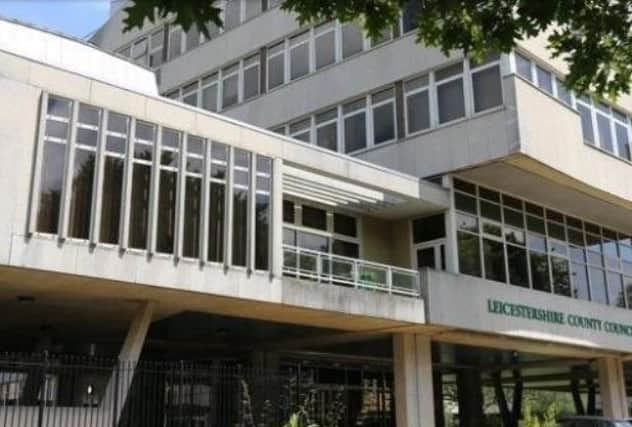More cuts coming as Leicestershire County Council faces £20 million black hole in its budget next year


Hard-up Leicestershire County Council is facing a £20 million black hole in its budget next year triggered by “surging inflation” and the Ukraine war.
County council chiefs are warning that they will have to dramatically cut back spending – hitting thousands of people in Harborough - as the UK’s inflation rate has rocketed to 9.1 per cent.
Advertisement
Advertisement
The authority calculated they would face an £8 million gap between what it needs to spend and its income next year.
But the council says the country’s worst inflation for 40 years bolstered by other pressures such as Russia’s invasion of Ukraine have now more than doubled that to about £20 million.
And by 2025/26 the budget gap is predicted to soar from £40 million to £70 million “unless further action is taken”.
The council’s cabinet is now asking senior finance officers to look at cutting capital expenditure and pinpoint further savings on top of those set out in February in its four-year Medium Term Financial Strategy (MTFS).
Advertisement
Advertisement
“National and global events since then have triggered a decline in the overall financial situation affecting all councils including Leicestershire.
“With inflation already at nine per cent - and expected to pass 11 per cent by October – the costs of providing day-to-day council services, as well a crucial long-term major infrastructure projects to accommodate a growing county population, have surged,” said the council.“For example, each 50p increase in the National Living Wage means an extra £10 million for the council to find.
“The cost of providing statutory social care for vulnerable and older adults and children will be the main service costs driven up sharply by inflation.”
Leicestershire is already struggling to cope as its traditionally England’s worst-funded county council.
Advertisement
Advertisement
The authority is now stepping up efforts to lobby local MPs and press the Government for a “fairer way of funding local authorities but has warned it cannot afford to wait for reforms”.
Cllr Nick Rushton, the council’s leader, said: “In the same way households are struggling with rising costs, it is simply becoming more and more expensive for the council to provide services because inflation is galloping away – with not much prospect of things improving any time soon.
“When we set our budget in February we said our situation was bad.
“Then Putin invaded Ukraine creating an economic aftershock that affects us and every council in a way that could not have been predicted,” said Cllr Rushton.
Advertisement
Advertisement
“This means we are now going to have to consider the kind of savings which will be unpopular and which we try to avoid.
“Though no decisions have yet been taken I want to level with people about the frightening financial situation we face.
“Officers have been asked to start working on new savings proposals as a matter of urgency which will have to include popular services such as support to businesses, highways maintenance, waste sites and buses, as well as in the more significant adults and children’s social care budgets,” added the council boss.